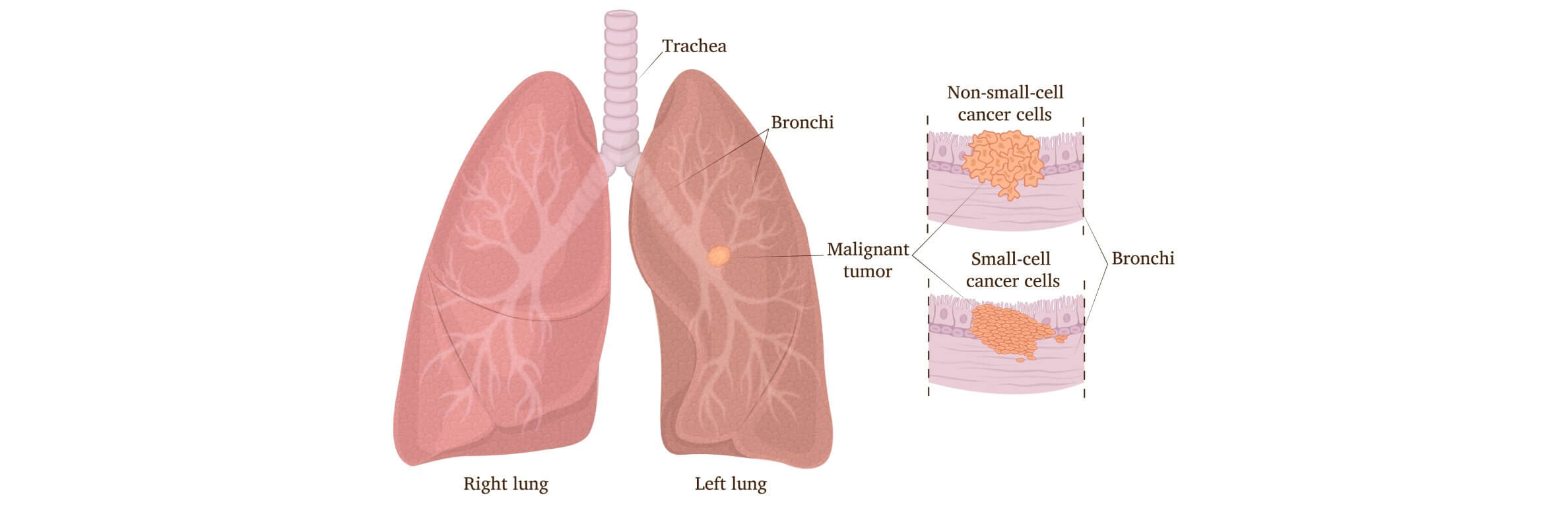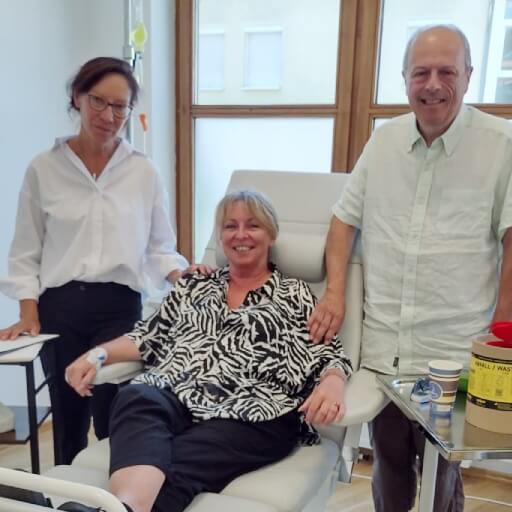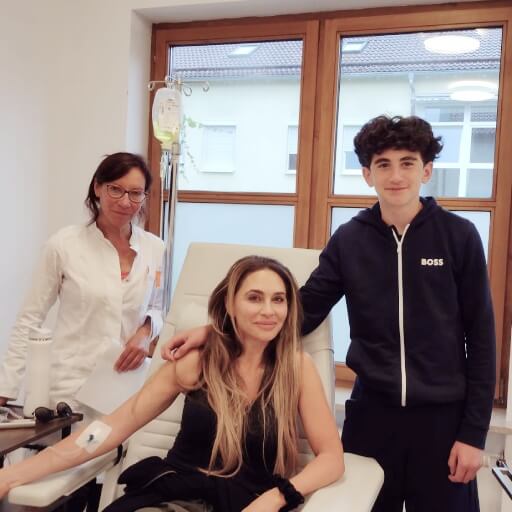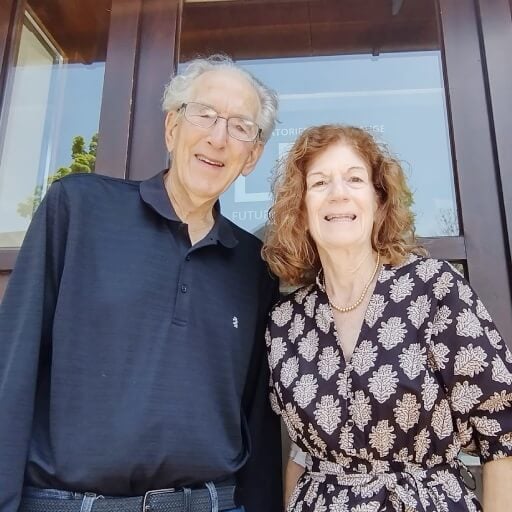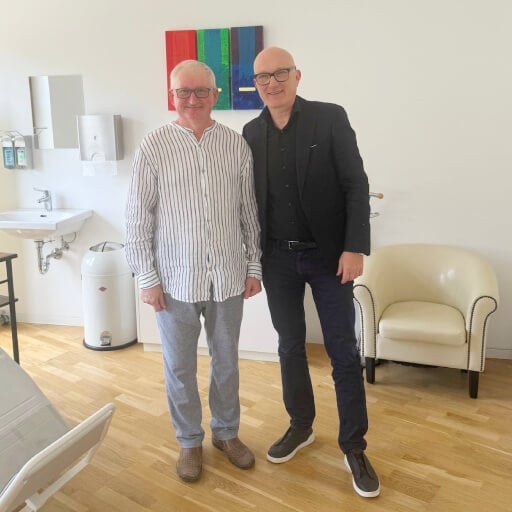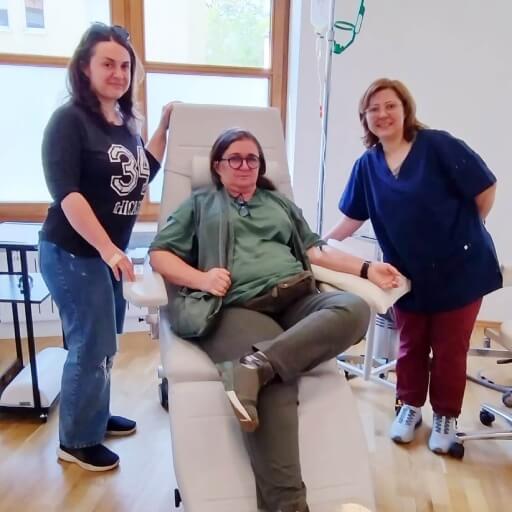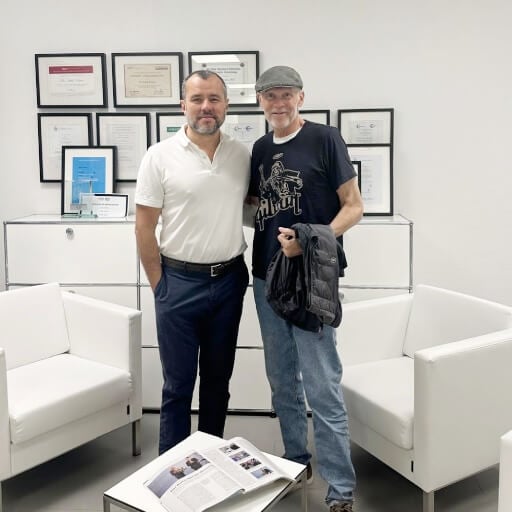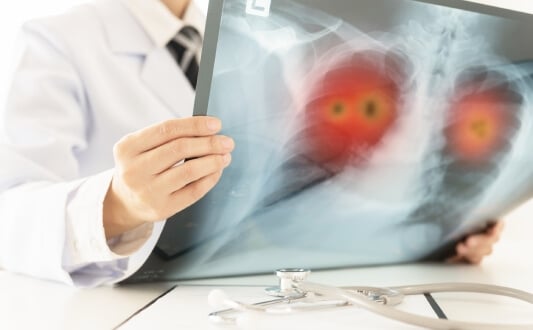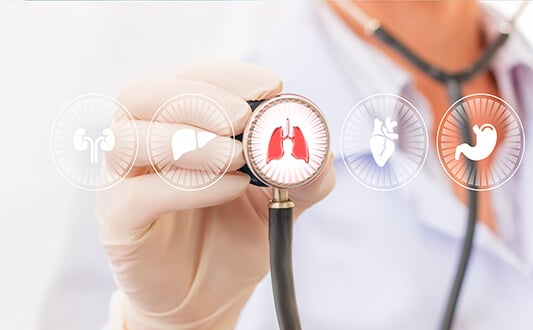Non-small cell lung cancer affects 85% of lung cancer patients, with stage III-IV cases having less than 5% five-year survival rates [1]. While traditional treatments help only 30% of selected patients, innovative dendritic cell immunotherapy shows 50-65% effectiveness rates in clinical studies. These "immune system generals" train your body to fight cancer cells, offering hope where conventional therapies fall short. German clinics report complete recoveries with patients remaining cancer-free for over five years.
Non-Small Cell Lung Cancer: Understanding the Challenge and Why New Treatments Matter
Non-small cell lung cancer (NSCLC) represents approximately 85% of all lung cancer cases and remains one of the most challenging malignancies to treat effectively [1]. Despite significant advances in cancer therapy over the past decades, NSCLC continues to be the leading cause of cancer-related deaths worldwide, with an estimated 1.8 million deaths annually [2]. The disease is particularly devastating because most patients are diagnosed at advanced stages, where the 5-year survival rate drops to less than 5% for stage III-IV NSCLC [3].
Traditional treatment approaches, including surgery, chemotherapeutic medicines, and radiation therapy, have shown limited success in advanced cases. Even with the introduction of targeted therapies and immune checkpoint inhibitors, which have revolutionized cancer treatment, response rates remain below expectations, with only about 30% of selected patients with high PD-L1 expression experiencing clinical benefits.
The complexity of NSCLC lies not only in its aggressive nature but also in the sophisticated mechanisms cancer cells employ to evade the immune system. Tumors create an immunosuppressive microenvironment that prevents the body's natural defense mechanisms from recognizing and eliminating malignant cells. This immune escape represents both a challenge and an opportunity – if we can effectively harness and redirect the immune system's power, we may achieve more durable and effective cancer control.
What Are Dendritic Cells and How Do They Work in Non-Small Cell Lung Cancer?
Dendritic cells (DCs) stand as the most powerful antigen-presenting cells in our immune system, earning their reputation as the "generals" or "officers" of immune responses. These remarkable cells were first discovered by German scientist Paul Langerhans in 1868, but their true significance wasn't fully appreciated until Canadian scientist Ralph Steinman's groundbreaking research in the 1970s. Steinman's work was so revolutionary that he was awarded the Nobel Prize in Physiology or Medicine in 2011 for his discovery of dendritic cells and their crucial role in adaptive immunity [4].
The primary function of dendritic cells centers on their unique ability to bridge innate and adaptive immunity. These cells continuously patrol tissues throughout the body, acting as sentinels that capture, process, and present antigens to T cells. When dendritic cells encounter foreign substances, including cancer-associated antigens, they undergo a sophisticated maturation process that transforms them from antigen-capturing cells into highly effective antigen-presenting cells.
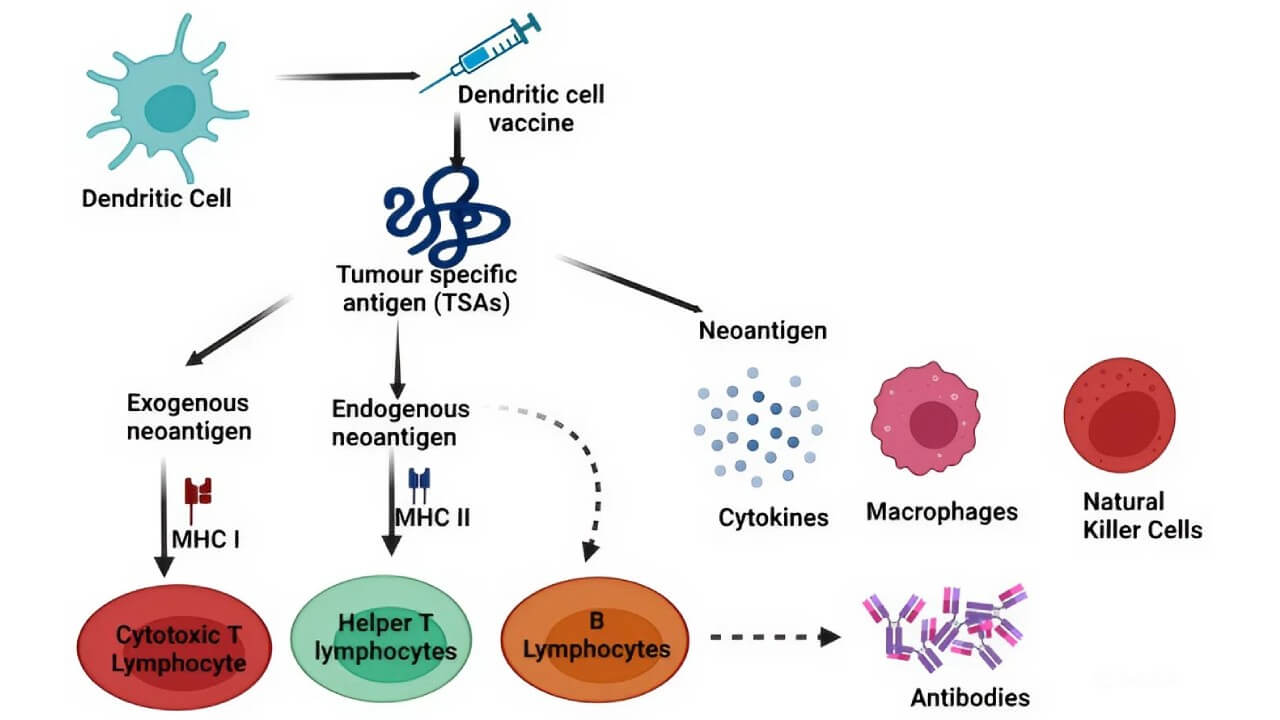
What makes dendritic cells particularly valuable in cancer immunotherapy is their exceptional capacity for cross-presentation – the ability to present antigens derived from external sources to CD8+ T cells. This process is essential for generating cytotoxic T lymphocyte responses against cancer cells. During cross-presentation, dendritic cells can take up tumor antigens from dying cancer cells and present them to naive T cells, effectively "training" the immune system to recognize and attack similar cancer cells throughout the body.
The maturation process of dendritic cells involves several critical stages [6]:
- Immature dendritic cells efficiently capture antigens but have a limited ability to activate T cells
- Mature dendritic cells excel at presenting processed antigens and provide crucial co-stimulatory signals
- Activated dendritic cells secrete important cytokines like IL-12 that help direct appropriate immune responses
- Migrating dendritic cells travel to lymph nodes, where they encounter and educate T cells
Dendritic Cell-Based NSCLC Immunotherapy
The application of dendritic cell medicines in NSCLC represents a sophisticated approach to cancer immunotherapy that aims to overcome the immunosuppressive tumor microenvironment. The mechanism of action involves extracting dendritic cells from the patient's blood, loading them with tumor-specific antigens in the laboratory, allowing them to mature into highly effective antigen-presenting cells, and then reinfusing them back into the patient to stimulate a robust anti-tumor immune response.
Clinical studies have demonstrated that dendritic cell therapy can achieve effectiveness rates of 50-65% in patients with early and metastatic non-small cell lung cancer, as measured by tumor response criteria including complete disappearance, tumor shrinkage, or disease stabilization. More importantly, this immunotherapy has been shown to significantly extend survival times, particularly when used as part of comprehensive treatment programs that may include surgical resection, chemotherapeutic medicines, or radiation therapy.
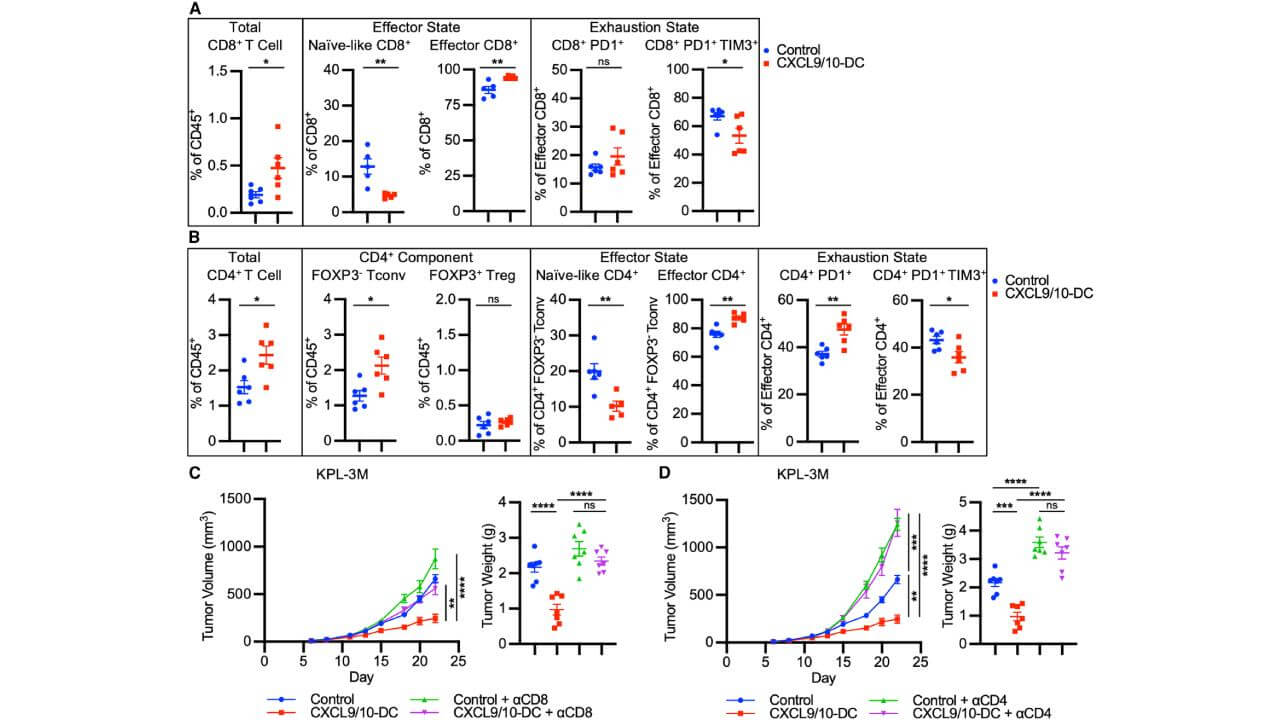
The versatility of dendritic cell therapy lies in its ability to complement other treatment modalities without compromising their effectiveness. This unique characteristic allows for a safe combination with:
- Chemotherapy. Dendritic cell therapy can help maintain immune function while conventional treatments attack cancer cells directly. Studies have shown that patients receiving combination therapy often experience better outcomes than those receiving chemotherapy alone, with enhanced cancer control rates and improved quality of life measures.
- Targeted therapy integration allows for attacking cancer through multiple pathways simultaneously. While targeted therapies focus on tumor-specific molecular abnormalities, dendritic cell therapy educates the immune system to recognize a broader range of tumor-associated antigens.
- Immune checkpoint inhibitor synergy represents one of the most promising areas of research. While checkpoint inhibitors remove the "brakes" on T cell responses, dendritic cell therapy provides the "fuel" by presenting tumor antigens and activating tumor-specific T cells. This combination approach addresses both the suppressive tumor environment and the need for robust immune activation.
The timing and sequencing of these combinations require careful consideration. Recent research suggests that dendritic cell immunotherapy may be most effective when tumor burden is reduced through other means first, allowing the immune system to more effectively recognize and eliminate remaining cancer cells.
| Characteristic | Standard Methods | Dendritic Cell Therapy For Lung Cancer |
|---|---|---|
| 2-Year Survival Rate | ~25-35% for advanced cases | Up to 60% in select patients |
| Response Rate | Less than 10-20% in advanced cases | 45-65% |
| Side Effects | Severe systemic toxicity (nausea, fatigue, neutropenia, infections) | Mostly mild (local redness, fever, fatigue for 24-48h) |
* Booking Health data on the treatment of non-small cell lung cancer in Germany
Expert Insights from Prof. Gansauge: The Power of Dendritic Cells in Cancer Treatment
Prof. Frank Gansauge brings over 22 years of experience in dendritic cell-based immunotherapy, making him one of the world's leading experts in this field. His clinic has been pioneering dendritic cell immunotherapy since 2001, becoming one of the first private laboratories capable of performing this innovative treatment. Prof. Gansauge's approach combines rigorous scientific methodology with personalized patient care, achieving remarkable results in cancer treatment.
"The idea behind dendritic cell therapy is that these cells, which I call the 'officers' of the immune system, are specially trained to trigger an immune response against malignant cells," explains Prof. Gansauge. His clinic has demonstrated several cases of complete recovery, where patients achieved a complete response to therapy with no signs of malignant processes after follow-up examinations. Perhaps most remarkably, they have documented patients who remained cancer-free for over five years after treatment, representing true long-term remission.
What sets Prof. Gansauge's approach apart is the use of "fresh" dendritic cells that are injected immediately after laboratory processing, without freezing. This technique eliminates functional losses associated with cell freezing and storage, potentially enhancing the immunotherapy's effectiveness. The treatment protocol is streamlined yet comprehensive:
- Week 1: Blood collection (150-200 ml depending on patient's body mass) and laboratory processing
- Week 2: Single vaccination with subcutaneous injection of dendritic cell-based vaccine
- Supportive medicines: High-dose vitamin D and water-soluble vitamins to optimize immune function
"The vaccination procedure itself is absolutely unremarkable," notes Prof. Gansauge, emphasizing the treatment's simplicity from the patient's perspective. However, behind this apparent simplicity lies sophisticated laboratory work conducted under strict regulatory oversight, including supervision by the European Medicines Evaluation Agency and the Paul Ehrlich Institute.
Prof. Gansauge's research has also revealed unexpected benefits beyond cancer treatment. Patients receiving dendritic cell-based therapy have reported looking younger and feeling more energetic after treatment.
Expert Insights from Prof. Gansauge: The Power of Dendritic Cell Therapy in Cancer Treatment
Why Germany is Leading in Advanced NSCLC Immunotherapy
Germany has established itself as a global leader in cancer treatment, offering patients access to cutting-edge therapies, world-class medical infrastructure, and comprehensive care programs. The country's healthcare system combines rigorous quality standards with innovative treatment approaches, making it an attractive destination for patients seeking advanced cancer care.
Hospitals in Germany are characterized by their multidisciplinary approach, where teams of specialists collaborate to develop personalized treatment plans for each patient. These teams typically include oncologists, surgeons, radiation therapists, immunologists, and other specialists who work together to ensure optimal care coordination. The infrastructure supporting lung cancer treatment in Germany includes:
- State-of-the-art facilities equipped with the latest diagnostic and treatment technologies, including advanced imaging systems, precision radiation therapy equipment, and sophisticated laboratory facilities for innovative treatments like dendritic cell-based therapy.
- Extensive certification and quality assurance programs ensure that treatments meet the highest international standards. German hospitals undergo regular inspections and must maintain strict compliance with both European and national regulations.
- Research integration allows patients to access the latest treatment innovations through clinical trials and experimental therapies that may not yet be available in other countries.
The German healthcare system's emphasis on personalized medicine aligns perfectly with the individualized nature of dendritic cell therapy for lung cancer. Each treatment is specifically tailored to the patient's tumor characteristics, immune status, and overall health condition. Advanced lung cancer treatment in Germany provides patients with numerous benefits and confidence in their treatment decisions.
Hospitals in Germany also prioritize patient education and informed consent, ensuring that patients understand their treatment options and can make well-informed decisions about their care.
| Price | Conventional Medicine | Dendritic Cell Therapy |
|---|---|---|
| Cost of treatment in Germany | €30,000-€120,000 for a full course | €20,000-€38,000 for a full course |
| Cost of treatment in the UK | $28,000-$130,000 for a full course | Not available |
| Cost of treatment in the USA | $80,000-$200,000 for a full course | Limited availability, estimated $100,000-$150,000 |
* Booking Health data, prices depend heavily on the healthcare facility chosen
Your Next Steps: Accessing Personalized NSCLC Dendritic Cell Treatment
Finding the best treatment strategy for your clinical situation is a challenging task. Being already exhausted from multiple treatment sessions, having consulted numerous specialists, and having tried various therapeutic interventions, you may be lost in all the information given by the doctors. In such a situation, it is easy to choose a first-hand option or to follow standardized therapeutic protocols with a long list of adverse effects instead of selecting highly specialized innovative treatment options.
To make an informed choice and get a personalized cancer management plan, which will be tailored to your specific clinical situation, consult medical experts at Booking Health. Being at the forefront of offering the latest medical innovations for already 12 years, Booking Health possesses solid expertise in creating complex cancer management programs in each individual case. As a reputable company, Booking Health offers personalized stage 4 lung cancer treatment plans with direct clinic booking and full support at every stage, from organizational processes to assistance during treatment. We provide:
- Assessment and analysis of medical reports
- Development of the medical care program
- Selection of a suitable treatment location
- Preparation of medical documents and forwarding to a suitable clinic
- Preparatory consultations with clinicians for the development of medical care programs
- Expert advice during the hospital stay
- Follow-up care after the patient returns to their native country after completing the medical care program
- Taking care of formalities as part of the preparation for the medical care program
- Coordination and organization of the patient's stay in a foreign country
- Assistance with visas and tickets
- A personal coordinator and interpreter with 24/7 support
- Transparent budgeting with no hidden costs
Health is an invaluable aspect of our lives. Delegating management of something so fragile yet precious should be done only to experts with proven experience and a reputation. Booking Health is a trustworthy partner who assists you on the way of pursuing stronger health and a better quality of life. Contact our medical consultant to learn more about the possibilities of personalized treatment with innovative methods for metastatic lung cancer with leading specialists in this field.
Personalized Dendritic Cell Treatment: Experience with Booking Health
FAQ About Dendritic Cell-Based Immunotherapy In Non-Small Cell Lung Cancer
Send request for treatmentDendritic cells in lung cancer therapy involve extracting immune cells from the patient's blood, loading them with tumor antigens in the laboratory, and reinfusing them to stimulate a targeted immune response against cancer cells. This cancer immunotherapy approach trains the immune system to recognize and attack lung cancer cells.
Studies show effectiveness rates of 50-65% in NSCLC patients, with significant survival extension. Clinical trials of dendritic therapy demonstrate tumor response, including complete disappearance, shrinkage, or stabilization. The NSCLC survival rate improves particularly when combined with other treatments, offering hope for patients with limited conventional options.
Dendritic cell therapy can complement various stage 4 NSCLC treatment options. Eligibility for immunotherapy depends on individual patient factors, including overall health condition and tumor characteristics. A thorough medical evaluation determines suitability for this personalized lung cancer treatment.
NSCLC clinics in Germany offer state-of-the-art facilities with multidisciplinary teams and cutting-edge laboratory capabilities. Immunotherapy protocols in Germany follow strict regulatory oversight. Treatment involves blood collection, laboratory processing, and a single vaccination with comprehensive supportive care.
Immunotherapy side effects are generally minimal with dendritic cell therapy. The safety profile of dendritic vaccines is excellent, as these differentiated cells don't divide and resist the toxic effects of conventional medicines. Patients often report feeling more energetic, with the vaccination procedure being unremarkable and well-tolerated.
Yes, BookingHealth support facilitates access to treatment abroad in Germany for international patients. Services include medical report analysis, clinic selection, document preparation, visa assistance, personal coordination with 24/7 support, and transparent budgeting. Expert guidance ensures a seamless experience with cancer immunotherapy abroad.
Dendritic cell therapy increases the 2-year survival rate of patients with stage III–IV non-small cell lung cancer to 60%, compared to 25–35% with conventional therapies. It also shows a 45–65% response rate.
Unlike conventional therapies that cause systemic toxicity (nausea, fatigue, neutropenia), dendritic cell therapy causes only mild reactions一such as flushing, mild fatigue or fever for 24–48 hours.
In Germany non-small cell lung cancer patients receive dendritic cell therapy only after thorough evaluation. Treatments are personalized and administered under continuous monitoring. Also they are integrated with standard oncology care to support immune function.
Choose treatment abroad and you will for sure get the best results!
Authors:
This article was edited by medical experts, board-certified doctors Dr. Nadezhda Ivanisova, and Dr. Bohdan Mykhalniuk. For the treatment of the conditions referred to in the article, you must consult a doctor; the information in the article is not intended for self-medication!
Our editorial policy, which details our commitment to accuracy and transparency, is available here. Click this link to review our policies.
Sources:
[1] MDPI. Dendritic Cell Vaccination in Non-Small Cell Lung Cancer: Remodeling the Tumor Immune Microenvironment. https://www.mdpi.com/2073-4409/12/19/2404
[2] Nat Rev Clin Oncol 2023; 20:624–39. The global burden of lung cancer: current status and future trends. https://www.nature.com/articles/s41571-023-00798-3
[3] Dovepress. The Emerging Mechanisms and Therapeutic Potentials of Dendritic Cells in NSCLC. https://www.dovepress.com/the-emerging-mechanisms-and-therapeutic-potentials-of-dendritic-cells--peer-reviewed-fulltext-article-JIR
[4] Roman Volchenkov, Florian Sprater, Petra Vogelsang, Silke Appel. The 2011 Nobel Prize in physiology or medicine. Scand J Immunol. 2012 Jan;75(1):1-4. doi: 10.1111/j.1365-3083.2011.02663.x. [DOI] [PubMed]
[5] Vaccines (Basel). Neoantigen Identification and Dendritic Cell-Based Vaccines for Lung Cancer Immunotherapy. https://www.mdpi.com/2076-393X/12/5/498
[6] Marc Dalod, Rabie Chelbi, Bernard Malissen, Toby Lawrence. Dendritic cell maturation: functional specialization through signaling specificity and transcriptional programming. EMBO J. 2014 Apr 15;33(10):1104–1116. doi: 10.1002/embj.201488027. [DOI] [PMC free article]
[7] Cell Reports Medicine. CXCL9/10-engineered dendritic cells promote T cell activation and enhance immune checkpoint blockade for lung cancer. https://www.cell.com/cell-reports-medicine/fulltext/S2666-3791(24)00125-3
Read:
Dendritic cell therapy in cancer treatment in Germany - Vaccination against cancer
Article menu:
- Non-Small Cell Lung Cancer: Understanding the Challenge and Why New Treatments Matter
- What Are Dendritic Cells and How Do They Work in Non-Small Cell Lung Cancer?
- Dendritic Cell-Based NSCLC Immunotherapy
- Expert Insights from Prof. Gansauge: The Power of Dendritic Cells in Cancer Treatment
- Why Germany is Leading in Advanced NSCLC Immunotherapy
- Your Next Steps: Accessing Personalized NSCLC Dendritic Cell Treatment
- FAQ About Dendritic Cell-Based Immunotherapy In Non-Small Cell Lung Cancer
Don't know where to start?
Contact Booking Health